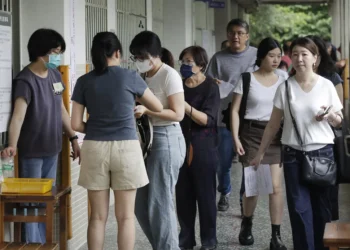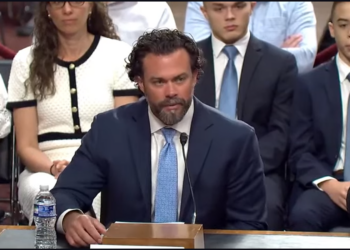“War is a grave affair of state; it is a place of life and death, a road to survival and extinction, a matter to be pondered carefully.”
So begins Sun Tzu’s The Art of War, a brief treatise whose advice on battlefield strategies and tactics — and whose ruminations on cunning and deception — have been studied by leaders of all walks for more than 2,000 years.
And while there’s nary a word in that ancient document about rare earth materials — those that underpin our modern world through the manufacture of everything from consumer electronics to medical equipment to jet engines to missiles and radar systems — Master Sun himself couldn’t have imagined a more advantageous situation for his side than to have China in control of between 60% and 90% of the globe’s mined and processed rare earths.
That was the lay of the land, though, as the U.S. and China concluded two days of high-level trade talks in London, after which President Donald Trump announced that China would loosen its grip on those critical manufacturing materials in exchange for the cessation of the Trump administration’s efforts to revoke the visas of some 275,000 Chinese students on American college campuses.
Call it minds for mines. But don’t take it lightly. That visa crackdown was long overdue, given that the ChiComs pilfer some $300-$600 billion worth of American technology and intellectual property every year.
Clearly, then, our utter dependence on China for those rare earths is a serious weakness and a matter of national security that the Trump administration — and successive administrations — have to fix, preferably before we’re forced into a military conflict with the ChiComs. They are, after all, our foremost geopolitical foe, and they’re bent on supplanting us as the world’s preeminent nation.
How did it come to this? How did we end up being forced to deal with these lying, thieving, scheming ChiComs? In two words, the environment. While we in the U.S. are loath to strip-mine the countryside in search of scandium and cerium and promethium and the like, China has no such compunction, nor any regulatory hurdles to overcome. Nor do the ChiComs worry about worker rights and worker safety, not when they can simply throw an army of slave-laborers at the problem.
As for the deal, it still needs the formal sign-off of both sides, but it’s clear that the two trade titans are “tamping down tensions that just a week ago threatened to disrupt global supply chains,” as The Wall Street Journal puts it. August is the deadline for negotiating a broader trade deal, but the two sides can extend that deadline if they so choose.
“The two largest economies in the world have reached a handshake for a framework,” said Commerce Secretary Howard Lutnick. “We’re going to start to implement that framework upon the approval of President Trump, and the Chinese will get their President Xi’s approval, and that’s the process.” As Trump himself PUT IT on Truth Social yesterday:
OUR DEAL WITH CHINA IS DONE, SUBJECT TO FINAL APPROVAL WITH PRESIDENT XI AND ME. FULL MAGNETS, AND ANY NECESSARY RARE EARTHS, WILL BE SUPPLIED, UP FRONT, BY CHINA. LIKEWISE, WE WILL PROVIDE TO CHINA WHAT WAS AGREED TO, INCLUDING CHINESE STUDENTS USING OUR COLLEGES AND UNIVERSITIES (WHICH HAS ALWAYS BEEN GOOD WITH ME!). WE ARE GETTING A TOTAL OF 55% TARIFFS, CHINA IS GETTING 10%. RELATIONSHIP IS EXCELLENT! THANK YOU FOR YOUR ATTENTION TO THIS MATTER!
The Chinese statement on the deal was, predictably, bloodless and bureaucratic: “The two sides had a candid and in-depth dialogue, exchanged views in depth on economic and trade issues of mutual concern, reached a principled consensus on the framework of measures to implement the important consensus reached by the two heads of state on June 5 and consolidate the results of the Geneva economic and trade talks, and made new progress in resolving the economic and trade concerns of both sides.”
So much for the ChiComs’ vow to fight us on tariffs “to the bitter end.” The Chinese know full well the fundamental truth that in trade wars, the surplus nation tends to get the worst of it. In this case, China enjoys a trade surplus with the U.S. of around $300 billion annually.
On the other hand, so much for our concerns about that Chinese student who now faces federal charges for having tried to smuggle a potential agroterrorism agent into the U.S.
Echoing China’s economic concerns, Treasury Secretary Scott Bessent, who helped hammer out the deal in London, briefed the House Ways and Means Committee yesterday: “China currently has the most imbalanced economy in the world. They are in the midst of a real estate downturn, some may call a crisis, and they are trying to export their way out of it, rather than take domestic measures.”
Bessent added that the ChiComs “cannot be allowed to export their way back to prosperity,” which would lower the standard of living for American workers and others all around the world.
That the administration understands the threats posed by China is a good thing — a very good thing. That we’re somewhat hamstrung from playing real hardball with them because of their monopoly on rare earth materials is a bad thing — a very bad thing.
















